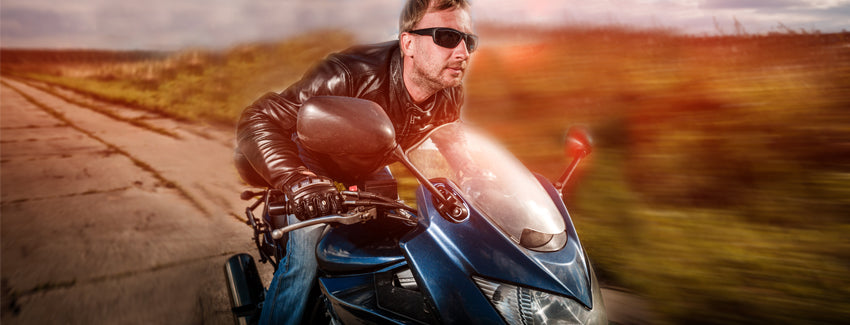| It's not illegal to ride a motorcycle. However, some of the Thin Blue Line do see a motorcycle as a valid excuse to stop the rider. |
| This is not every law enforcement officer, but enough of them do it to make this a concern for the motorcycle community. |
| Idaho is the latest state to see a bill before the legislature to stop motorcycle profiling. |
| State Rep Robert Anderst introduced the bill. Get more info here. |
| Profiling is a real issue for bikers. A check on Google shows it's done in nearly every state, especially those which have giant biker rallies and the states next to the rally state. |
| WHAT IS PROFILING? |
| It's not called "profiling" where it is done. It's called a "motorcycle checkpoint" and the given reason is public safety. |
| Before taking a look at the profiling problem and what's being done, let's start with what is profiling. |
| Russ Brown, a Washington state biker attorney, blogged about this in 2015. He says the broadest definition is "Solely relying on appearance as opposed to the legal requirement of conduct amounts to discrimination and violates federal law." |
| IS PROFILING A REAL PROBLEM |
| If you just ride around town and take short road trips, profiling may not be a problem for you. Head to a major rally and you might encounter it. Get out on an interstate highway and you may encounter it. |
| David "Double D" Devereaux guest blogged the issue for attorney Brown in January. |
| Double D is proactive on this issue. His website, The Motorcycle Profiling Project (MPP) keeps a running log of profiling cases and the results. A recent example comes from late fall of last year. Most disturbing is this chilling sentence, "Those cited were independents, not club members." |
| WHY CHECKPOINTS? |
| Why does law enforcement do motorcycle-only checkpoints? If you publicly ask those in law enforcement pushing the checkpoints, the answer is "public safety." Unfortunately, they have plenty of ammo for that argument. Google "bikers" or "motorcycle" on YouTube and the top results are sports bikes doing stunts on public roads, spectacular crashes and running from law enforcement. |
| While 1%ers represent less than 1 percent of the people who ride motorcycles, they garner an outsize share of news reports. That's a factor in these motorcycle-only checkpoints. |
| Some people wonder if money is the issue. Tickets do generate income for the local community coffers and law enforcement directly. Fine add-ons go directly to things like a local jail maintenance fund, victims assistance programs and others. Certainly, that's part of the reason, albeit a very bad one. Most "checkpoints" don't generate enough money to cover the expense of putting it on. |
| STOPPING PROFILING |
| Stoping motorcycle profiling is one of the aims of every motorcycle rights group. If you are not a member of a rights group, consider joining one. Links to the various groups here. |
| If you look for specific law on the matter, the federal level has nothing. Last summer, the US House of Representatives started the ball rolling. House Resolution (HR) 831 tried to urge cooperation between bikers and law enforcement to "prevent instances of profiling." HR 831 is pretty much dead |
| However, motorcycle rights groups were successful in one respect. "After eight years, Congress finally banned the use of federal funds for motorcycle-only checkpoints," writes The Aging Rebel . That happened in winter 2015. |
| States can still use their own money for motorcycle-only checkpoints. "Checkpoints are also restricted by state law or judicial action in: Alaska, Louisiana, Missouri, North Carolina, Virginia, Illinois, New Hampshire, Idaho, Iowa, Maryland, Michigan, Minnesota, Oregon, Rhode Island, Texas, Washington, Wisconsin and Wyoming," writes the American Motorcycle Association (AMA). |
| If your state allows profiling, talk to your elected reps. This needs to stop. |
Motorcycle profiling a continuing problem

Tags: Opinion




